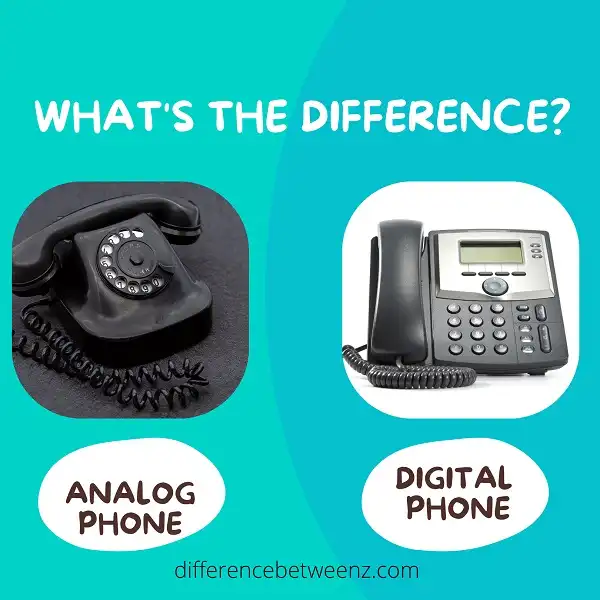In this digital age, there are many forms of communication. One of the oldest and most popular forms is the telephone. Although many people still use analog phones, digital phones have become more prevalent in recent years. There are several differences between these two types of phones, which will be explored in this blog post.
What is an Analog Phone?
Analog phones are the traditional type of phone that has been used for many years. They use a technology called Analog Transmission, which converts the sound waves of a person’s voice into electrical signals. These signals are then sent over the phone line to the person receiving the call. Analog phones are still in use today, although they are gradually being replaced by digital phones. While Analog Transmission is relatively simple and easy to understand, it is not as efficient as digital transmission, which is why most new phones are now digital. Analog phones are typically cheaper than digital phones, which is another reason why they are still widely used.
What is Digital Phone?
Digital Phone is a phone that uses a digital signal rather than an analog signal. Digital Phone has many benefits over Analog Phones. Digital Phone uses less battery power, so the talk time is longer. Digital Phone often has better call quality than Analog Phone. Digital Phone is often more secure than Analog Phone. Digital Phones can be used with VoIP (Voice over IP), which can save you money on long-distance calls.
Difference between Analog and Digital Phones
- Analog phones use an Analog signal while digital phones convert the Analog signal to a digital one.
Analog phones are simple and have been used for many years. They are typically less costly than digital phones. Older phone lines are Analog. If you have an Analog phone, you can only hear one conversation at a time (i.e., you can’t conference call or use three-way calling). - Digital phones provide higher quality audio than Analog phones. In addition, Digital phones offer more features such as conferencing, caller ID, and voicemail. If you have a digital phone, you can also keep your existing Analog phone number.
- When using a digital phone, your conversations are converted into packets of data and transmitted over the Internet or your company’s data network.
- If you’re looking for a new business phone solution, consider the benefits of both Analog and Digital phones before making your decision.
Conclusion
The debate between analog and digital phones has been around for a while. There are benefits to both technologies, but which one is better for you? Let’s take a look at the pros and cons of each type of phone to see which one comes out on top. Analog phones have been around since 1876 and use your voice to create an electrical signal that is sent through copper wires to the other person’s phone. This technology is slowly being phased out because it can be difficult to hear someone on an analog phone in a noisy environment and the quality of calls often decreases over long distances. Digital phones convert your voice into data packets that are transmitted over the internet using either Wi-Fi or cellular data.


